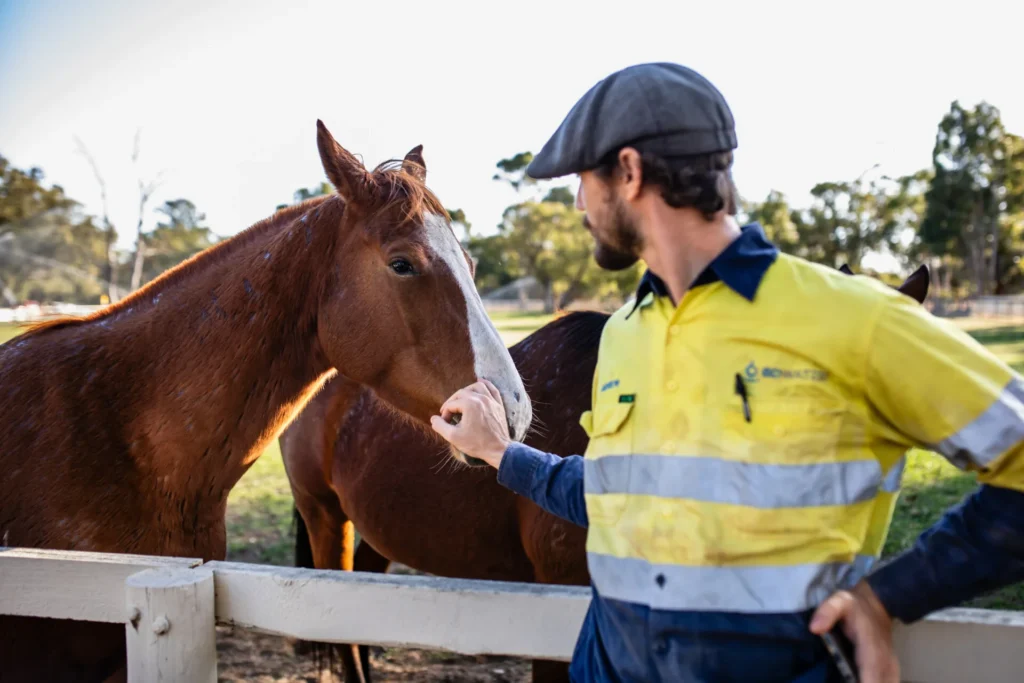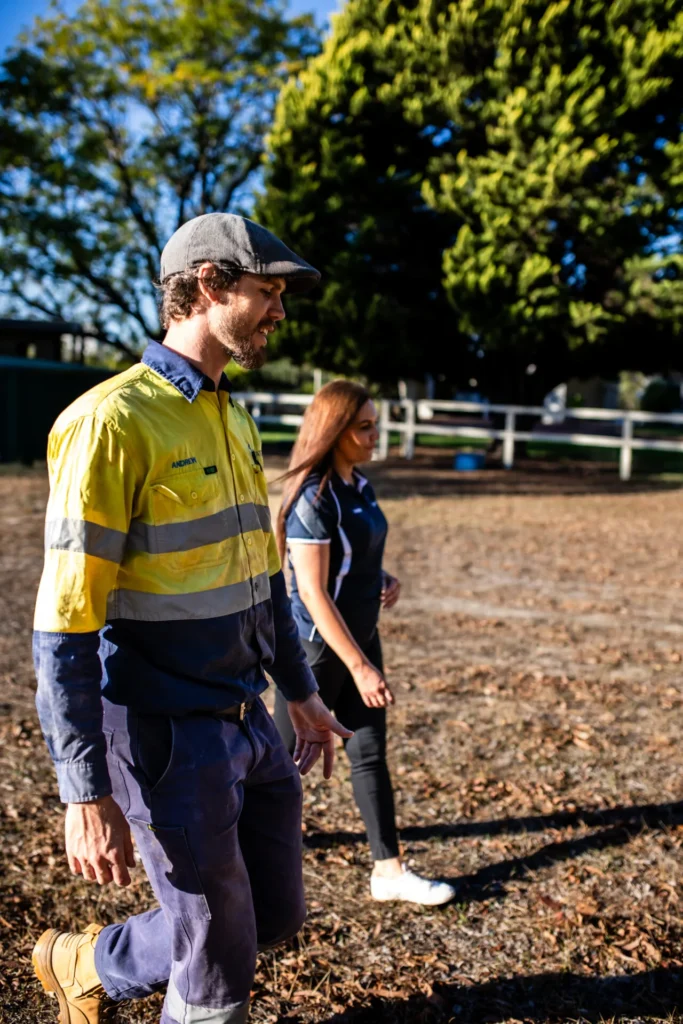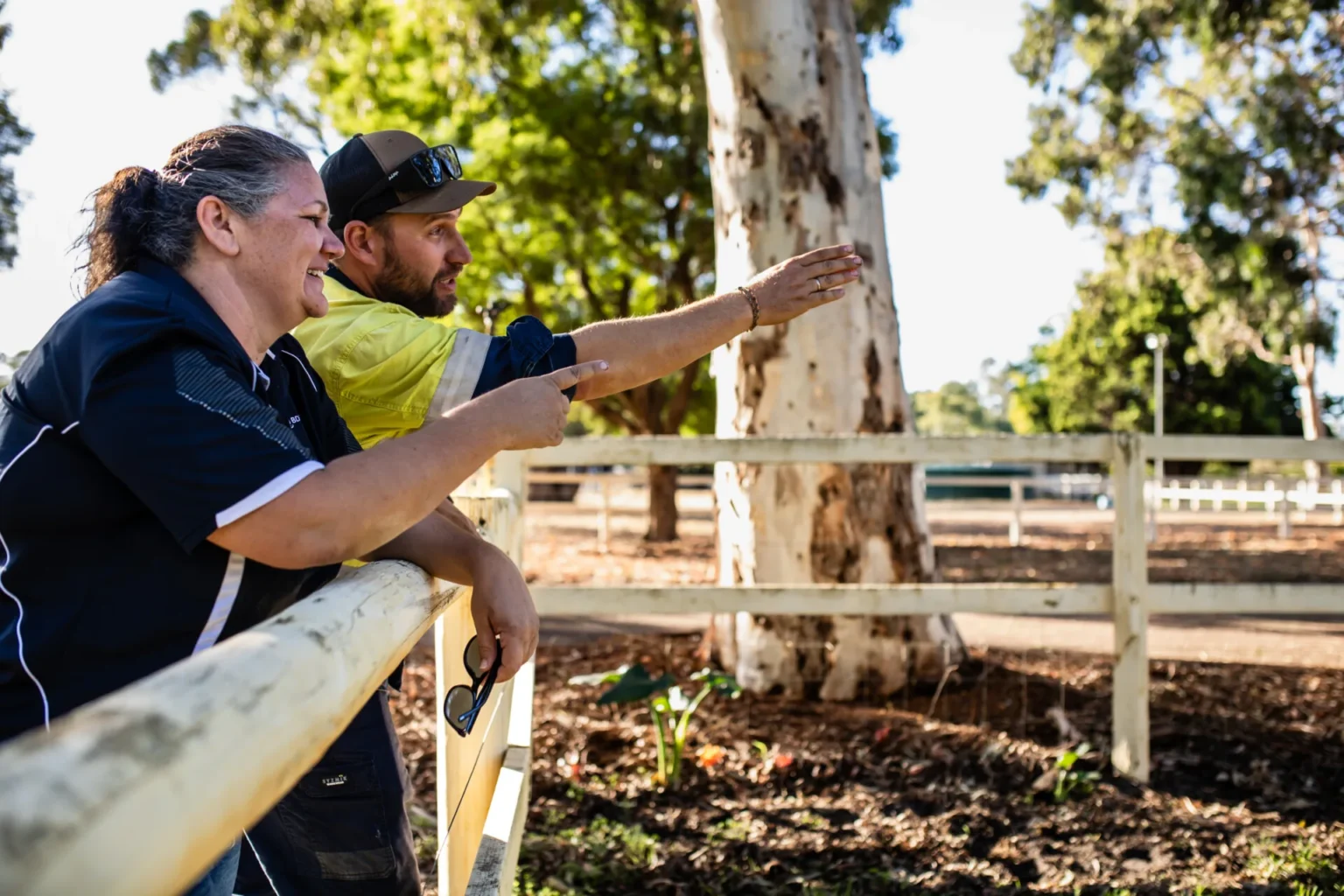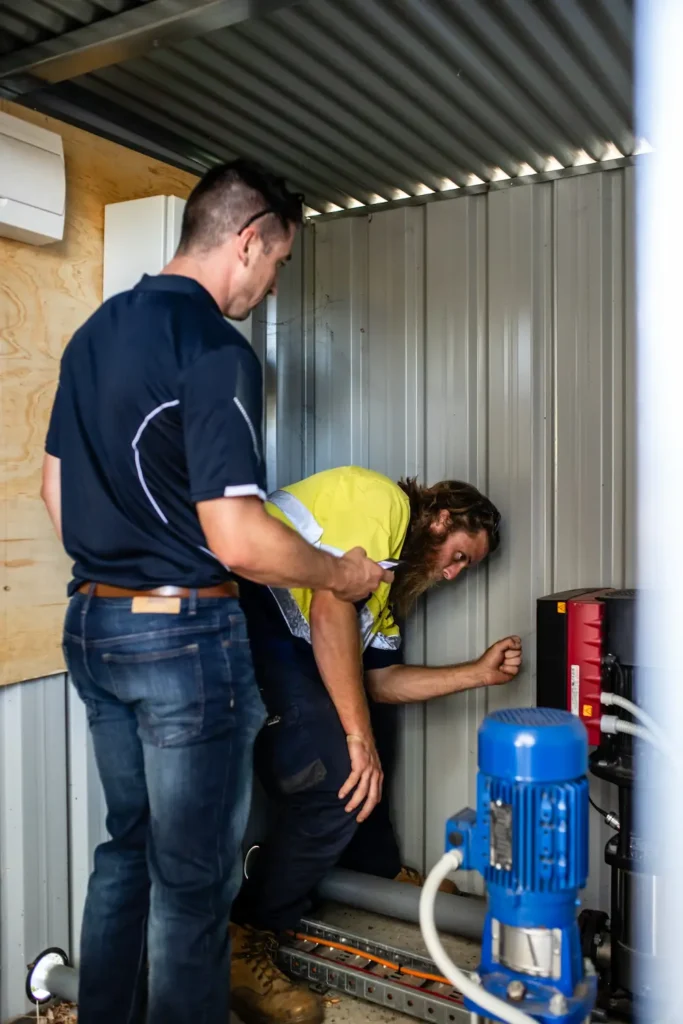Water Manager
Bores
Development

Improve your bore performance through development.
Think of development as cleaning and fine-tuning the bore, optimising its performance, and ensuring you get the best water quality possible.
When a bore is drilled or use over time, the surrounding materials can block the water pathways, reducing the flow rate or, in some cases, even clogging the bore. Development is designed to remove these obstructions, allowing the groundwater to flow freely and at the expected rate.
At BD Water, we handle the bore development process with the expertise and attention to detail needed to make your bore a reliable and long-term water source.

Development improves your water supply quality and reliability.
Better flow and quality
This is particularly important for properties that rely on high water output, such as farms or large irrigation systems.
Extend your bore, pump and irrigation lifespan
This means fewer repairs for the bore, pump and irrigation, bringing lower maintenance costs, and a longer lifespan for your water supply system.
Testing the bore post development
The goal is to ensure the bore meets your expectations.

How do we develop water bores?
Jetting
Air-Lifting
Chemical Dosing
Our Customers
What our clients and drillers say about us.
Develop your bore for optimal performance.
Skipping development or doing it improperly can lead to a lower flow rate, or worse, it could pull up water with high sediment content, causing issues with your pumps and irrigation system. Proper development ensures that the bore yields as much clean water as possible, future-proofing your bore.
Bore development is essential in creating a reliable and efficient water supply for your property. At BD Water, with our expert techniques and commitment to customer satisfaction, we help you get the most out of your bore, both now and in the future.
Frequently Asked Questions (FAQ)
Can I prevent the staining from my bore?
Although Iron Bacteria can never be completely eliminated, as it lives naturally in many of the formations and aquifers, it can be regulated using a range of low impact, non-toxic chemicals to remove the bulk of bacterial substrate. This in turn reduces the amount of visible stain and odour.
Frequency of application is determined by the severity of the subterranean infection and subsequent staining. Existing staining can then be removed by a number of commercially available compounds such as X-Fe.
Other methods of stain prevention involve the design of your station spray coverage, minimising over-spray and infrastructure obstruction will reduce the impact of the staining while reducing the cost of stain removal considerably.
We offer decontamination and restoration services for problematic bores as well as treatment and filtration solutions.
Although iron bacteria can make water unsightly and cause an unpleasant taste and odour; there is currently no health risk associated with iron bacteria. There are also no active health concerns regarding iron presence in bore or drinking water.
Outside of visible staining, iron bacteria contributes to a great deal of system strain, such as pump corrosion, flow restriction, poor system operation and unpleasant working conditions for servicemen. If left to develop, it can lead to system failure, requiring costly repair or even pump replacement.
Can I maintain my bore during the winter sprinkler ban?
Leaving your pump and bore inactive over the entirety of winter is a hazardous corrosion risk, particularly where ones water supply is high in salts or iron.
As per Department of Water and Environmental Regulation guidelines, included below, it is legal to run your bore for one of your allotted watering days for a maximum station run time of 2 minutes. This is vital to keeping your pump and equipment in serviceable condition.
“The maintenance of garden bores is important and under the legislation a person does not commit an offence if the person operates a reticulation system, using domestic bore water to the minimum extent necessary while the reticulation system is being installed, maintained, tested or repaired.
We deem the ‘minimum extent necessary’ to be no more than two minutes per station. Running your reticulation longer than this may be deemed as watering your garden.
We recommend you carry out work on your sprinkler roster days, either before 9am or after 6pm.”
What is an Aquifer?
An aquifer is a body of water below the ground that is made of permeable rock, soil or clay that enables water to flow through it. Aquifers are generally referred to as confined and unconfined.
- Unconfined Aquifers (eg. Superficial) are naturally able to transfer water with the environment around it, such as a river, lake or the ground surface above. These are generally closer to the surface. Due to the unconfined nature, these aquifers are readily accessed and can vary greatly in production quantity and quality.
- Confined Aquifers (eg. Mirrabooka & Leederville) are separated and contained to a ground layer and area. These can still be extremely large, however, they are naturally sealed from other aquifers and environments, generally via an impermeable layer of clay, and should not blend with other aquifers. These bodies of water can still be accessed via a bore, although it is vital that they are sealed off during the drilling. As these bodies are enclosed, they can often produce very consistent production quantity and quality, usually at higher bore drilling costs, due to the depths and construction specifications required.
Does bore water need to be treated?
It may need to. Particularly if you are concerned with water quality, the first step in determining if treatment is needed is to conduct water quality testing. Once the test results are in, you can compare them with your required water quality indicators, and check if you need to treat it.
Generally, bore water doesn’t need to be treated it if it’s odourless, colourless, the pH tests greater than 5. If you have specific quality requirements for your water use, we can assess the filtration options you may need, and provide recommendations.
Bore water is not recommended for drinking water. If you do want to consume it, it’s important to test and chlorinate it properly. For more information about drinking from the water bores in Perth, consult the official drinking water guidelines.
What type of maintenance will I have to carry out on my bore?
The most important factor is that the bore construction is handled properly. Maintenance costs can be significantly reduced if the construction of the bore is done right in the first place. This is why we don’t compromise on the quality of our bore drilling and development services. The model and size of pump also affect the health of the bore, so they need to be carefully selected and tailored to the bore and irrigation needs.
Once the bore is installed, you should complete your flow testing and water quality testing to check the bore’s initial and likely optimal performance. Bores can improve over time, but if properly developed, the initial testing should be the highest quality and flow the bore can produce. This can then be used as a benchmark to measure the bore performance over time.
While the bore is operating, you should keep an eye out for signs of damage or corrosion, particularly when turning the bore back on for summer.
How much is a consultation and quote?
Most of our consultations and quotes are free of charge. We conduct consultation with you, generally on site, to get to know you and understand your water needs, then provide a free quote.
In some cases, specialised research, testing or designing is required before we can provide a formal quote for the works. This includes bore drilling consultations and irrigation where a large system design is required. In these cases, we will discuss the costs of these services before doing anything, and if you’d like to go ahead, we can help you get a comprehensive solution, tailored to your needs.
